Blog
Make the Last Call Against SB 384
How to Let Sacramento Know You Oppose 4 A.M. Bar Closing Times
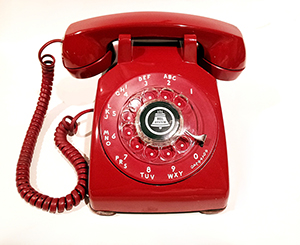 One of the worst side effects of bad policy isn't just the harm it inflicts on the community. It's the feeling of powerlessness to change things. This is not one of those times.
One of the worst side effects of bad policy isn't just the harm it inflicts on the community. It's the feeling of powerlessness to change things. This is not one of those times.
As SB 384, the bill that would recklessly extend bar closing times to 4 a.m., makes its way through the Senate, Alcohol Justice and the California Alcohol Policy Alliance teamed up to organize an All-State Call-In. Held Wednesday, March 22, the event brought together supporters and advocates for community health to call the California state senators who will be voting on this bill. Now, the organizations turn to the public and urge them to make their voices heard as well.
There are many arguments that need to be made. For starters, extending bar opening hours would increase hazardous driving, assaults and injuries, and place substantial stress on already taxed emergency services. Although proponents say it will increase tax revenue, not a penny is reserved to fund medics or police. Even if it were, the contribution would pale in comparison to the over $38 billion alcohol drains out of California's economy—a cost that will surely rise with the later closing times.
Indeed, it seems the real beneficiaries will be entertainment lobbies and Big Alcohol. Time and time again, we’ve seen corporate interests circumvent locally enforced regulations. In the past, it's been liquor license caps and moratoriums; alcohol sellers have found numerous loopholes or plead for special consideration to the point where those regulations are, in the words of Mission Local, "Potent as a weak drink." there’s no reason to believe that residents of the areas affected by late last calls will be any better able to push back against slick lobbies. Meanwhile, even localities that keep a 2 a.m. (or earlier) time will find more road hazards as drinkers commute to and from later-call locales.
It's time the arguments were heard by those responsible for safeguarding—or undermining—the state. On Tuesday, March 28th, the CA Senate Governmental Organization (GO) Committee will hold a hearing on SB 384. Now is the time to call in and let them know this bill is harmful, needless, and part of an upsetting trend of kowtowing to industry.
Below, find a list of Senate GO Committee members and their phone numbers. If you need inspiration, a short script is below. Go down the list and ask to speak to a policy staff person about SB 384. It will take 10 minutes to run down the list—but stopping this bill can protect a generation.
—
| Senate GO Committee Member phone numbers | |
|---|---|
| Chairman Steven Glazer | (916) 651-4007 |
| Tom Berryhill | (916) 651-4008 |
| Steven Bradford | (916) 651-4035 |
| Anthony Cannella | (916) 651-4012 |
| Bill Dodd | (916) 651-4003 |
| Ted Gaines | (916) 651-4001 |
| Kathleen Gagliani | (916) 651-4005 |
| Jerry Hill | (916) 651-4013 |
| Ben Hueso | (916) 651-4040 |
| Ricardo Lara | (916) 651-4033 |
| Tony Mendoza | (916) 651-4032 |
| Anthony Portantino | (916) 651-4025 |
| Andy Vidak | (916) 651-4014 |
Script to Oppose SB 384
"Hello, my name is [-----NAME-----]. I'm from [-----CITY OR TOWN------], and I urge the senator to oppose SB 384 as it reaches the Senate GO Committee next Tuesday. I oppose SB 384 because it threatens the wellbeing of my neighborhood. Extending alcohol sales hours to 4 a.m. will only benefit bar and restaurant owners, leaving taxpayers the bill for the increased public health and safety risk. This is a critical issue for our state. Thank you for your time."
—
Alcohol Justice and CAPA sincerely thank everyone who takes the time to be involved. California, for all its differences, is one state, and should stand as one for the health and safety of its citizens.
Put California’s 4 a.m. Bar Bill to Bed
Dangerous Bill’s Health Hazards Hidden Behind Empty Rhetoric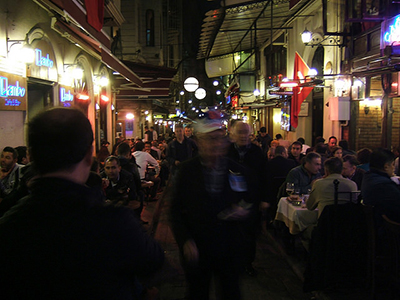 Most doctors will tell you it’s never too early to stop drinking. According to California State Senator Scott Wiener (D-San Francisco), however, it’s never too late to keep drinking. Wiener has introduced a bill to the state senate allowing bars and nightclubs to continue serving alcohol until 4 a.m. Wiener claims the bill (SB 384) will promote tourism and generate additional income. However, existing research suggests the extra costs—in law enforcement, health and safety, and quality of life—will far outweigh any tax revenues.
Most doctors will tell you it’s never too early to stop drinking. According to California State Senator Scott Wiener (D-San Francisco), however, it’s never too late to keep drinking. Wiener has introduced a bill to the state senate allowing bars and nightclubs to continue serving alcohol until 4 a.m. Wiener claims the bill (SB 384) will promote tourism and generate additional income. However, existing research suggests the extra costs—in law enforcement, health and safety, and quality of life—will far outweigh any tax revenues.
Health research and common sense both suggest that later alcohol service is linked to greater alcohol-related violence, traffic incidents, and emergency room visits. This both costs money and strains emergency services, forcing both law enforcement and medical staffs to operate at higher capacities around the clock. Proponents of the bill contend the bill emphasizes “local control,” but residents of alcohol-outlet dense neighborhood will be disproportionately impacted while any revenue benefits flow up into state coffers or into the pockets of the nightlife industry. Moreover, none of those profits are earmarked for programs to counteract the harm caused by extended drinking. This gap is exacerbated by a law passed by voters in 2010 that makes it effectively impossible for local jurisdictions to generate those funds through charge-for-harm strategies—a bit of bitter irony that local control advocates conveniently ignore.
This is the second go-around for a late-night bar bill. A similar version of was introduced in 2013 by Mark Leno, and defeated thanks to the efforts of community groups and health advocates. “Nothing has changed since 2013,” said Bruce Lee Livingston, Executive Director / CEO of Alcohol Justice. “A bill to allow the sale of alcohol until 4 a.m. will create dangerous new public policy that threatens health and safety throughout California.”
California already bears a higher burden from alcohol-related harm than any other state, including 10,572 dates, 17,700 hospitalizations, and tens of billions of dollars of costs to government and the public. Moreover, researchers are only scratching the surface of the long-term health effects of alcohol. “We just don’t need additional hours of business for this substance,” Alcohol Justice Director of Public Affairs Michael Scippa told the San Francisco Chronicle. “It’s not like selling coffee and doughnuts. This is a substance which is a class one carcinogen.”
Extended bar hours have a proven potential to create lasting damage to individuals and communities, and offer few benefits to average Californians. Alcohol Justice and the California Alcohol Policy Alliance strongly oppose SB 384. Put this dangerous bill to bed.
READ MORE about Alcohol Justice and CAPA’s opposition.
LISTEN to Alcohol Justice Executive Director/CEO Bruce Lee Livingston present his opposition on KQED.
WATCH CAPA's video giving the truth on this unsafe, unhealthy bill.
TAKE ACTION to urge your elected representatives to stop SB 384.
States Move to Tighten DUI Laws
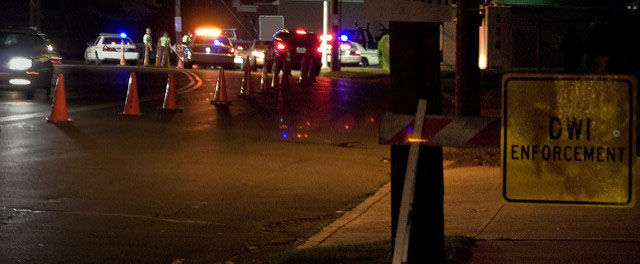 There is no safe level of drinking before driving. While 0.08 is the threshold throughout the U.S., this number isn’t a proven cutoff. Many countries throughout the world set the cutoff lower, and this year four states are considering meeting them there.
There is no safe level of drinking before driving. While 0.08 is the threshold throughout the U.S., this number isn’t a proven cutoff. Many countries throughout the world set the cutoff lower, and this year four states are considering meeting them there. The National Transit Safety Board has long advocated to set a 0.05 blood alcohol content as the base level for driving under the influence. Hawaii, Utah, and Washington all have bills in their legislature setting the BAC limits there, while a New York bill would set it at 0.06. The Hawaiian bill was introduced by State Senator Josh Green, a physician. “At 0.05, you’re 50 percent less likely to cause an accident, less likely to hurt yourself, to kill an innocent person on the road,” Dr. Green said to local outlet KHON.
Alcohol Justice has long maintained that 0.05 saves lives. “Alcohol is a factor in almost a third of motor vehicle fatalities in this country,” said Michael Scippa, Director of Public Affairs for Alcohol Justice. “When it comes to lowering BAC limits and saving lives, the science is on the side of these legislators.”
TAKE ACTION to tell your representatives to support Point .05 Saves Lives.
Budweiser Sheds Olympic Rings, But Still Stains the NFL
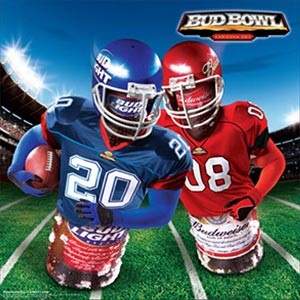 Just months after renaming itself "America" in honor of U.S. Olympians, Budweiser has terminated its sponsorship of Team USA, CNN reports. The decision comes in the wake of disappointing ratings for the scandal- and Zika-plagued 2016 games in Rio de Janeiro.
Just months after renaming itself "America" in honor of U.S. Olympians, Budweiser has terminated its sponsorship of Team USA, CNN reports. The decision comes in the wake of disappointing ratings for the scandal- and Zika-plagued 2016 games in Rio de Janeiro.
According to Ad Age, Budweiser parent company A-B InBev found that the winter games were not a "key consumption period" for their product. The summer games, on the other hand, tended to attract an older, more female audience, while the brand hopes to reach young males.
Alcohol Justice Executive Director/CEO Bruce Lee Livingston applauded Budweiser's withdrawal, and urged them to go further. "A-B InBev spends hundreds of millions annually advertising during sporting events," he said in a press release. "This leads to increased underage drinking and turns family events into drunken, violent experiences."
A-B InBev has a $1.4 billion contract through 2022 with the National Football League, and is regularly the top spender in Super Bowl advertising. This lucrative relationship persists in the face of an alarming and persistent rise in violence at football games.
With that in mind, Alcohol Justice calls for A-B InBev to really live up to the name America, and take an action that would benefit countless young fans: keep withdrawing from sports sponsorships, starting with the Super Bowl. Livingston, however, is not optimistic. "They want young American men hooked on their beers, so unfortunately we expect them to keep going for the teen boy audience that the Super Bowl attracts," he said.
WATCH award-winning youth-produced counter-beer ads from past Free the Bowl® and Free Our Sports® video contests.
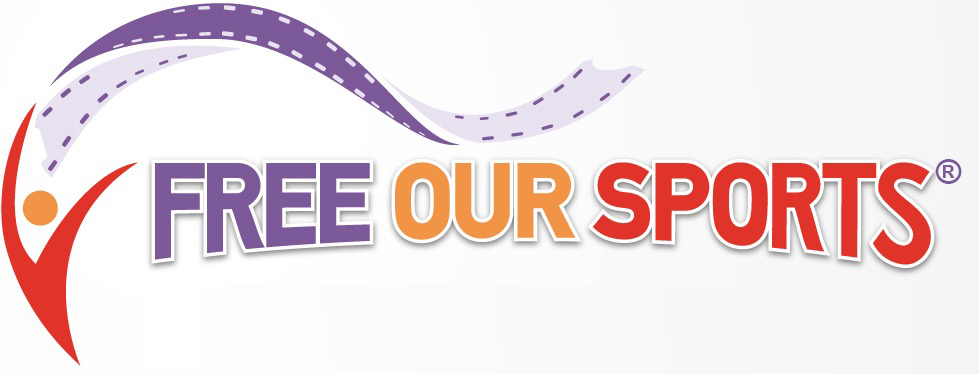
READ MORE about Zombie Spuds--A-B InBev resurrects youth-oriented icon for Superbowl ad, could reach 30 million kids.
READ MORE about getting alcohol out of our sports.
More Articles ...
Help us hold Big Alcohol accountable for the harm its products cause.
| GET ACTION ALERTS AND eNEWS |
STAY CONNECTED    |
CONTACT US 24 Belvedere St. San Rafael, CA 94901 415-456-5692 |
SUPPORT US Terms of Service & Privacy Policy |


